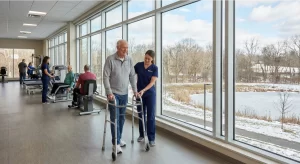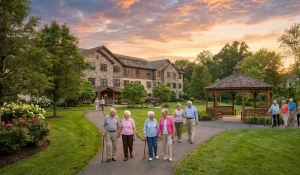Skilled nursing facilities (SNFs) are pivotal components of the healthcare ecosystem, providing essential care and rehabilitation services to those in need. With the rising aging population, the demand for such facilities is more significant than ever. This comprehensive guide explores skilled nursing’s critical role, its evolution, and what the future may hold for these indispensable institutions.
Introduction to Skilled Nursing
Skilled nursing involves specialized care provided by trained professionals to patients with varying degrees of medical needs. It plays an integral role in the healthcare system by offering a bridge between hospitalization and home care for patients requiring medical, nursing, or rehabilitative services.
The Evolution of Skilled Nursing
The concept of skilled nursing has undergone significant transformations over the years. These services were initially provided in basic care homes or by families. However, as medical knowledge and healthcare regulations have evolved, so has the complexity and quality of care offered in skilled nursing facilities. These changes reflect a broader understanding of patient needs and advancements in medical care.
The Skilled Nursing Facility (SNF): A Closer Look
Skilled Nursing Facilities, like Wilton Meadows, provide comprehensive services catering to individuals requiring short-term rehabilitation following surgery, illness, or injury, or long-term care due to chronic conditions or disabilities. Facilities such as Wilton Meadows exemplify the dedication to creating a nurturing environment where every resident can receive the care they need in a setting that promotes dignity and respect.
Qualities of a Good-Skilled Nursing Facility
When searching for a quality SNF, consider staff qualifications, facility amenities, personalized care plans, and a family-like culture among staff and residents. The Wilton Campus, designed by Fred Rzepka, is a prime example of how a vision centered on joy, dignity, and relationship-centered care can create an unmatched level of service and quality. Their commitment to a warmhearted caregiver environment and flexible, customized solutions to senior care sets them apart.
The Role of Healthcare Professionals in Skilled Nursing
A diverse team of healthcare professionals, including nurses, therapists, dietitians, and social workers, collaborate within SNFs to provide comprehensive care tailored to each resident’s unique needs. Their expertise ensures that patients receive the highest quality of care for recovery or managing long-term health conditions.
Challenges and Innovations in Skilled Nursing
Despite their critical role, skilled nursing facilities face staffing shortages, regulatory changes, and financial pressures. Yet, innovation thrives, with many adopting technology to improve patient care, streamline operations, and enhance residents’ overall quality of life.
The Future of Skilled Nursing
Advancements in technology, changing regulations, and a growing focus on personalized, patient-centered care are shaping the future of skilled nursing. Like Wilton Meadows, facilities that adapt to these changes and prioritize quality and innovation will provide exemplary care for the aging population.
Conclusion
Skilled nursing facilities are more than just healthcare providers; they are vital support systems for patients and families navigating the complexities of long-term care or rehabilitation. The compassionate, comprehensive care offered at places like Wilton Meadows represents the best of what skilled nursing can offer. As we look to the future, the importance of skilled nursing in the healthcare landscape will continue to grow, driven by dedication to quality, innovation, and each patient’s personalized needs.




